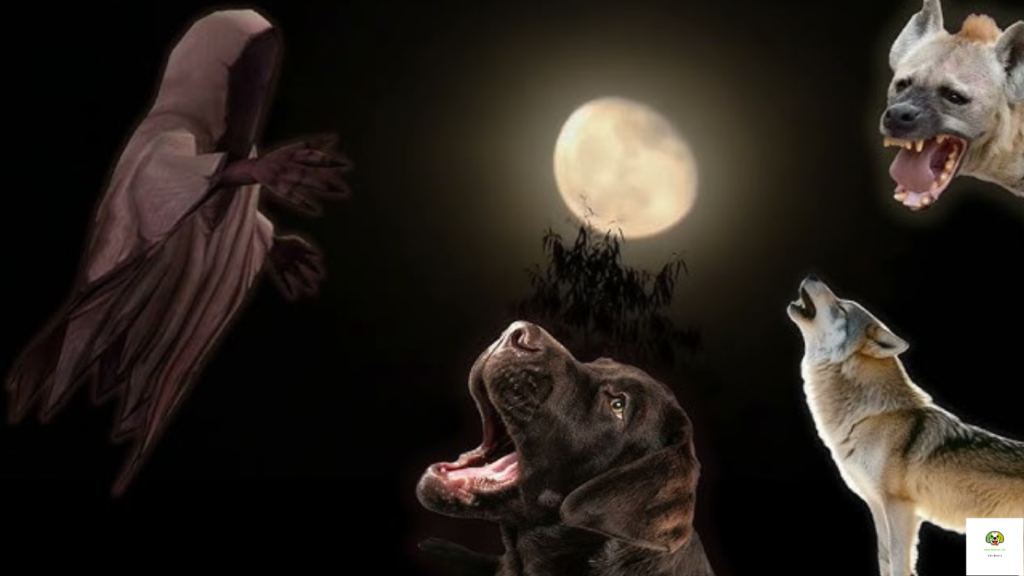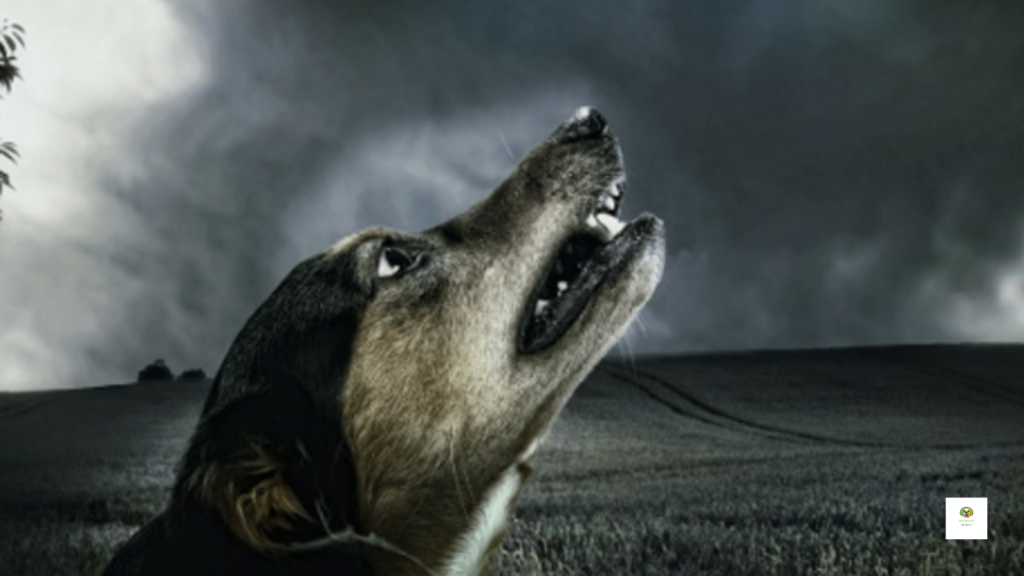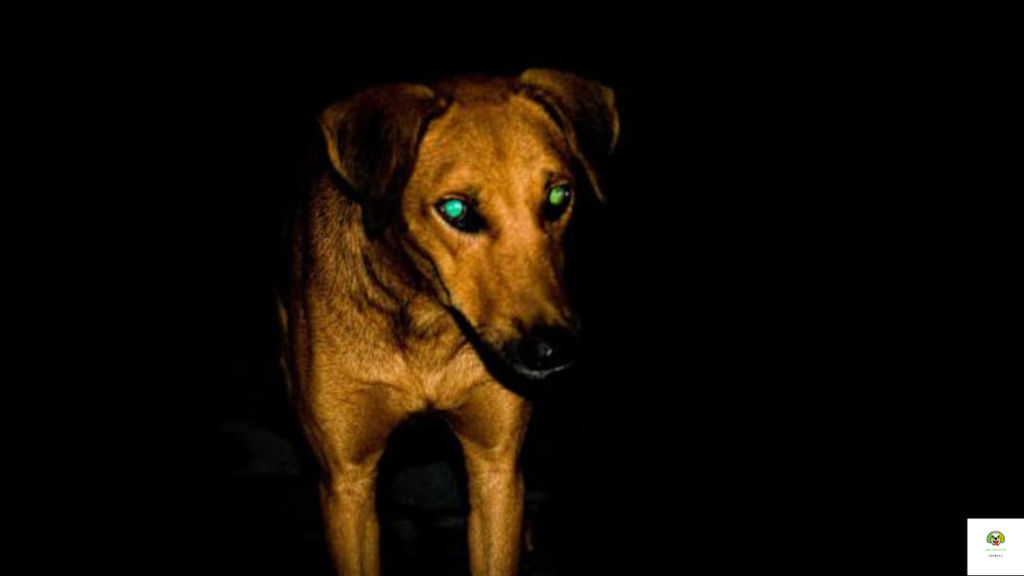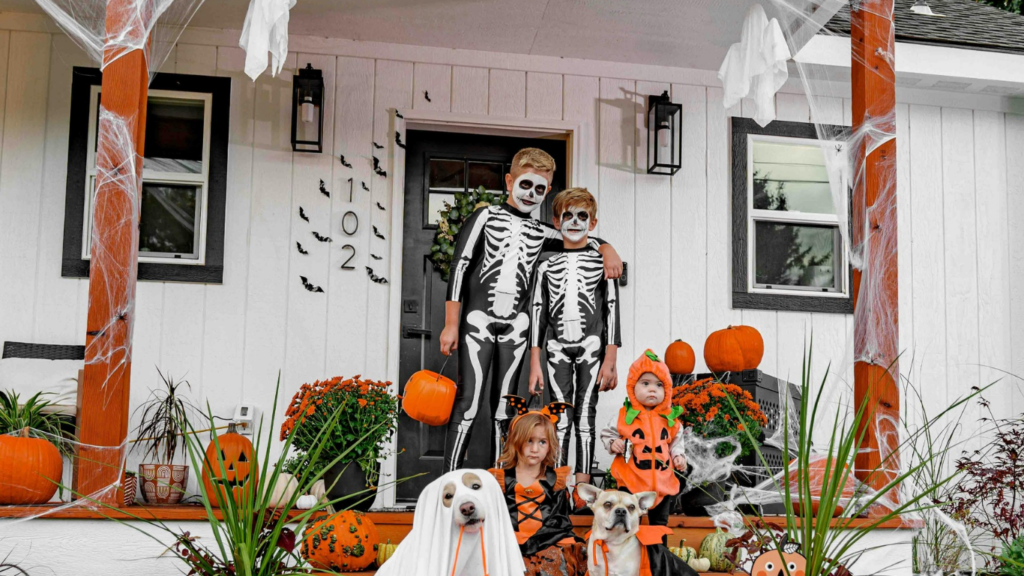Can Dogs See Ghosts at Night? While science hasn’t confirmed the existence of ghosts, dogs’ heightened senses often spark curiosity. Dogs see better in low light than humans, detect subtle sounds, and pick up scents we can’t.
Their sudden nighttime barking, staring at empty spaces, or unusual behaviour might seem ghost-related, but these reactions likely stem from environmental triggers—like distant noises, wildlife, or even shifts in air currents.
Their acute awareness of the unseen world doesn’t prove paranormal activity, but it highlights their extraordinary perception. Whether it’s a ghost or a hidden critter, dogs remind us how much lies beyond human senses—mysteries we’re still unravelling.
Can dogs see ghosts? What does science say
Have you ever caught your dog staring intently at an empty corner, barking at “nothing,or acting restless at night? For centuries, folklore has painted dogs as mystical guardians with a sixth sense for the unseen—whether it’s spirits, energies, or otherworldly visitors.
Stories of dogs growling at thin air or refusing to enter certain rooms fuel our fascination with the paranormal. But before jumping to ghostly conclusions, let’s turn to science. Dogs possess extraordinary senses: their hearing detects frequencies far beyond human range, their noses pick up scents we’d never notice, and their night vision outperforms ours in low light.

A rustle in the bushes, a distant animal, or even shifts in air pressure could explain their odd behavior. Veterinarians often attribute nighttime anxiety to heightened instincts, environmental triggers, or health issues. While the idea of dogs sensing ghosts sparks imagination, science reminds us that their world is shaped by instincts and biology—not the supernatural. So, is it ghosts… or just their remarkable ability to perceive what we can’t? The mystery lives on!
Connection between unusual behaviour of dogs and ghosts
Have you ever noticed your dog barking at an empty corner, staring intently at a wall, or acting restless for no obvious reason? Many pet owners have wondered if their furry companions are sensing something beyond human perception—like ghosts.
While the idea of dogs interacting with the supernatural is fascinating, there’s more to their odd behaviours than meets the eye. Dogs experience the world through heightened senses. Their hearing detects frequencies humans can’t perceive, and their sense of smell is up to 100,000 times stronger than ours.
A faint sound from a distant neighbour’s house, the rustle of a critter in the walls, or even shifts in air pressure before a storm can trigger reactions that seem mysterious to us. At night, their vision, though limited in colour, adapts better to low light, making them more alert to subtle movements or shadows we might miss. Instinct also plays a role. Dogs are naturally protective and territorial.
A creaking floorboard, a flickering light, or even the scent of a stray animal can put them on high alert. These reactions, while ordinary, might feel supernatural when we can’t identify the cause. Humans have long linked unexplained animal behaviour to folklore or paranormal activity, but science often offers simpler answers. That said, the bond between dogs and their owners is profound.
Some believe dogs pick up on their human’s anxiety or energy shifts, reacting to emotions rather than ghosts. Whether you lean toward spiritual beliefs or scientific reasoning, one thing is clear: dogs live in a sensory-rich world that remains partially hidden from us. So the next time your pup acts strangely, consider the possibility of unseen critters, distant noises—or just their quirky personality. After all, the mystery is part of what makes our pets so endlessly intriguing!
Can the sixth sense of dogs sense ghosts
The question, Can dogs see ghosts at night?has sparked curiosity for centuries, blending folklore with the mysterious bond between humans and their pets. While there’s no scientific proof that dogs detect supernatural entities, their heightened senses often make them react to stimuli invisible to us.

Dogs possess extraordinary hearing, smell, and night vision—capabilities far beyond human limits. At night, their eyes capture more light, and their ears pick up faint sounds, which might explain why they bark, stare, or growl at “nothing.” These reactions could simply be responses to distant noises, wildlife, or even shifts in air currents.
The idea of a “sixth sense” in dogs often ties to their ability to sense subtle changes in their environment. For instance, they might detect high-pitched frequencies or subtle vibrations humans can’t perceive.
Stories of dogs acting strangely—pacing, whimpering, or fixating on empty corners—often fuel beliefs about ghosts. Yet, these behaviours might also stem from anxiety, instinct, or even health issues. Dogs are also highly attuned to their owners’ emotions, so a tense atmosphere might trigger their alertness.
While science dismisses the paranormal, the mystery remains part of the charm. Whether dogs truly sense spirits or simply interpret the world differently, their nighttime vigilance keeps the legend alive.
So, the next time your dog stares intently into the darkness, remember—their world is full of invisible wonders, even if they’re not necessarily supernatural. After all, reality can be just as fascinating as folklore.
Reason for dogs barking at night – ghosts or something else
The idea of dogs barking at unseen forces, like ghosts, has fueled spooky tales for generations. While it’s fun to imagine our furry friends as paranormal detectives, the reality behind their nighttime antics is far more grounded in biology and instinct.
Dogs experience the world through senses far sharper than ours. Their hearing detects frequencies humans can’t perceive, and their noses pick up scents from miles away. A rustling leaf, a distant siren, or even the faint smell of a raccoon in the backyard could trigger their alertness, making them bark to communicate or investigate. Another factor? Routine changes.
Dogs thrive on predictability. A new neighbour’s late-night schedule, unfamiliar animals roaming nearby, or even shifts in weather (like wind carrying strange sounds) can disrupt their sense of normalcy, leading to anxious or territorial barking.
Similarly, boredom or loneliness might prompt vocalization—especially if they’re left alone for long hours after dark. That said, dogs are perceptive to emotions. If you’re tense or uneasy at night, they might mirror that energy, barking as a response to your stress rather than anything supernatural.
While the ghost theory adds mystery, it’s often simpler explanations—like wildlife, heightened senses, or emotional cues—that explain their behavior. If your dog’s nighttime barking feels excessive, consider environmental triggers.
Secure fences, calming routines, or white noise machines can help. And if all else fails? A vet checkup can rule out health issues causing discomfort. So, before blaming ghosts, remember: your dog’s world is alive with stimuli we barely notice.
Mythology and scientific view – dogs and spirits
For centuries, dogs have been celebrated as loyal companions, but their mysterious nighttime behaviors—staring into darkness, barking at nothing, or acting unsettled—have sparked debates about whether they sense the supernatural. Mythology and science offer fascinating, contrasting perspectives on this age-old question.

In folklore worldwide, dogs are often depicted as guardians between the living and spiritual realms. Ancient Egyptian mythology linked dogs (and jackals) to Anubis, the god of the afterlife, who guided souls to the underworld. Celtic legends spoke of spectral hounds like the Cŵn Annwn, believed to hunt lost souls.
Across Asia, dogs are seen as protectors against evil spirits, with some cultures claiming their howls signal unseen presences. These stories reflect a universal belief that dogs possess an innate sensitivity to energies beyond human perception.
Science, however, explains these behaviors through biology. Dogs’ senses are far sharper than ours—their hearing detects frequencies up to 65 kHz (versus humans’ 20 kHz), and their night vision, aided by a reflective eye layer called the tapetum lucidum, captures faint movements in low light.
A dog’s sudden alertness at night might simply mean they’ve heard a distant critter or spotted a shadow we can’t see. Their extraordinary sense of smell, which can detect chemical changes linked to stress or illness, might also explain reactions to invisible triggers. Additionally, dogs are highly attuned to human emotions; if an owner feels uneasy, their pet may mirror that anxiety.
While mythology romanticizes the idea of dogs as spirit-seers, science grounds their “ghostly” behaviours in sensory prowess. Whether you lean into mystery or biology, one truth remains: dogs perceive a world richer and more layered than our own.
What to do if your dog suddenly gets scared
If your dog suddenly seems scared, it’s natural to feel concerned and want to help. Dogs can become anxious or frightened for many reasons—unfamiliar noises, sudden changes in their environment, or even sensing something you might not notice.
Staying calm is your first step. Dogs are highly attuned to their owner’s emotions, so speaking in a soothing voice and maintaining relaxed body language can help them feel safer. Avoid over-coddling, as this might unintentionally reinforce fearful behavior. Instead, offer quiet reassurance by sitting near them or gently stroking their back if they’re comfortable with touch.

Next, assess their surroundings. Check for obvious triggers like thunderstorms, fireworks, or unfamiliar objects. If you can identify the cause, remove or minimize it. For example, closing curtains during fireworks or turning on white noise to drown out startling sounds.
If the fear seems unexplained, create a quiet, cosy space where your dog can retreat—a familiar bed, a crate draped with a blanket, or a corner with their favourite toys. Distraction can also work wonders.
Engage them in a calming activity they enjoy, like chewing a treat-filled toy or practising simple commands they know well. Redirecting their focus helps break the cycle of anxiety. For persistent or severe fear, consult your vet. Sudden behavioural changes can sometimes signal underlying health issues, and a professional can guide you on tools like training techniques, calming supplements, or behavioural therapy.
Remember, patience is key. Fear responses vary, and forcing your dog to “face their fears” can backfire. By staying observant, proactive, and compassionate, you’ll help your furry friend feel secure again.
Powerful senses of dogs to identify ghosts
Dogs have long been celebrated for their extraordinary senses, which often leave humans in awe. Their ability to perceive the world in ways we cannot has sparked curiosity about whether they might detect phenomena beyond our understanding—like the presence of spirits.
While science hasn’t confirmed the existence of ghosts, a dog’s heightened awareness could explain why they sometimes behave oddly in seemingly empty spaces, especially at night. A dog’s hearing is far superior to ours, capable of detecting frequencies and sounds imperceptible to human ears.
A distant creak, a rustle in the wind, or even subtle vibrations in the environment might trigger their alertness. Similarly, their sense of smell is up to 100,000 times more powerful than ours, allowing them to pick up faint odours or changes in the air that could go unnoticed by humans.
These sensory superpowers might cause them to react to stimuli we can’t perceive, creating the illusion that they’re sensing something “otherworldly.” Their night vision also plays a role. While dogs don’t see in complete darkness, their eyes are adapted to low-light conditions, making them more attuned to movement and shadows in dim environments.

A flicker of light, a shifting silhouette, or even the reflection of moonlight could catch their attention, leading to behaviours like staring intently, barking, or pacing. Combine these traits with a dog’s natural instinct to protect their territory, and it’s easy to see why their reactions might be interpreted as sensing spirits.
Whether it’s a trick of the senses or something more mysterious, dogs remind us that the world is full of unseen wonders—and their curiosity keeps us wondering, too.
Can Dogs Travel on International Flights In 2025? A Complete Guide to Pet-Friendly Air Travel
Can i travel with dog in train? everything you need to know
Should I get a dog or cat? Here’s How to Know Which One’s Right for You
Every type of dog in the world: An Essential Guide for Dog Lovers
What is the most popular dog in germany
FAQ
The idea that dogs see ghosts at night isn’t scientifically supported. Dogs have superior night vision due to a reflective layer in their eyes (tapetum lucidum), allowing them to detect movement and shapes in low light. Their heightened senses of hearing and smell also let them notice subtle sounds or scents humans miss, which might explain behaviours like barking at “nothing.” While spooky, these reactions are likely responses to natural stimuli, not supernatural encounters. It’s a mix of their instincts and our imagination!
The question of where a dog’s soul goes after death is deeply personal and varies by belief. Many find comfort in the idea that pets transition to a peaceful, loving place—often described as a “Rainbow Bridge” where they play freely. Others believe in reincarnation or that their spirit remains close to those they love. While there’s no universal answer, the bond and memories shared with a dog live on, offering lasting warmth and connection.
Dogs may cry at night due to loneliness, anxiety, or boredom, especially if left alone. Puppies often miss their littermates or need bathroom breaks. Older dogs might feel discomfort from health issues or hear unfamiliar sounds (like sirens or animals) that trigger instinctive howling. Ensuring they’re tired out before bed, providing comfort (a cosy crate or calming toy), and checking for medical needs can help. Consistent routines reassure them, reducing stress. If crying persists, a vet visit rules out pain or illness.
Dogs may cry at night due to loneliness, anxiety, or boredom, especially if left alone. Puppies often miss their littermates. Physical discomfort (hunger, thirst, or needing to potty) or health issues (pain, illness) can also trigger whining. Environmental factors like unfamiliar noises, changes in routine, or feeling confined might stress them. Some breeds are naturally more vocal. Comfort items, a consistent routine, or a vet check can help. Never punish them—they’re communicating, not misbehaving!

